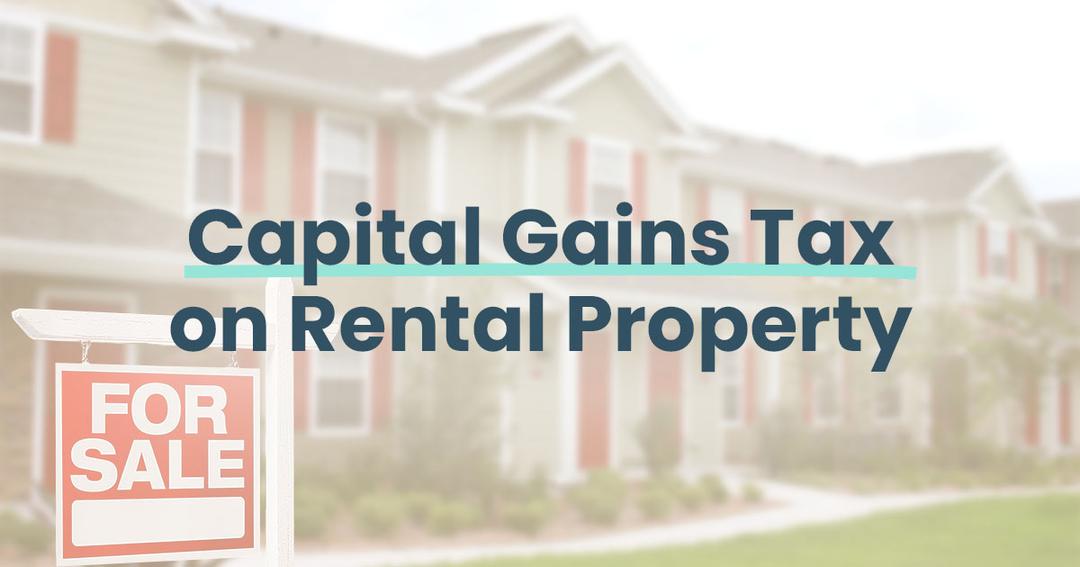
What are capital gains on a rental property?
Capital gains on a rental property are the profits made from selling real estate assets. When these transactions are not profitable, they’re referred to as capital losses. Special rules apply in regard to the basis for your gain or loss when an asset is received as a gift or inheritance.
Capital gains and losses are considered either long-term or short-term. If you retain an asset for a year or more before selling or otherwise disposing of it, it’s considered long-term. Anything shorter than a year is short-term. Again, special rules apply for property acquired from a decedent or patent property, commodity futures, and applicable partnership interests. Report the gain or loss on the sale of rental property on Form 4797, Sales of Business Property, or on Form 8949, Sales and Other Dispositions of Capital Assets, depending on the purpose of the rental activity. Individuals typically use Schedule D (Form 1040), Capital Gains and Losses together with Form 4797 or Form 8949.
How are capital gains calculated on the sale of rental property?
It can be tricky to determine the tax rates for capital gains on rental properties. Your tax rate depends on several factors, such as:
- Income
- Marital status
- How long you’ve owned the property
- If the property was a primary residence, investment property, or secondary residence
If you need to calculate your capital gains tax, you’ll first determine your tax rate. This rate differs if you have a short-term capital gains tax or a long-term capital gains tax.
2023 Short-term capital gains tax rates are based on the normal income tax rate.
| Tax Rate | Single | Married Filing Jointly | Married Filing Separately | Head of Household |
| 10% | $0 to $11,000 | $0 to $22,000 | $0 to $11,000 | $0 to $15,700 |
| 12% | $11,001 to $44,725 | $22,001 to $89,450 | $11,001 to $44,725 | $15,701 to $59,850 |
| 22% | $44,726 to $95,375 | $89,451 to $190,750 | $44,726 to $95,375 | $59,851 to $95,350 |
| 24% | $95,376 to $182,100 | $190,751 to $364,200 | $95,376 to $182,100 | $95,351 to $182,100 |
| 32% | $182,101 to $231,250 | $364,201 to $462,500 | $182,101 to $231,250 | $182,101 to $231,250 |
| 35% | $231,251 to $578,125 | $462,501 to $693,750 | $231,251 to $346,875 | $231,251 to $578,100 |
| 37% | $578,126 or more | $693,751 or more | $346,876 or more | $578,101 or more |
2023 long-term capital gains tax rates fall in a range of three percentage categories based on your income and filing status:
| Tax Filing Status | 0% Rate | 15% Rate | 20% Rate |
| Single | Up to $44,625 | From $44,625 to $492,300 | Over $492,300 |
| Married filing jointly | Up to $89,250 | From $89,250 to $553,850 | Over $553,850 |
| Married filing separately | Up to $44,625 | From $44,625 to $276,900 | Over $276,900 |
| Head of household | Up to $59,750 | From $59,750 to $523,050 | Over $523,050 |
How to avoid capital gains tax when selling a rental property?
Here are three suggestions for reducing or lowering capital gains on rental properties:
- 1031 Exchanges
- Offset Losses with Gains
- Convert Your Rental to a Primary Residence
1031 Exchanges
Section 1031 enables you to sell a rental property while purchasing a like-kind property. If you defer paying your capital gains taxes through a 1031 exchange, remember:
- You have 45 days after the property sale date to search for potential replacement properties
- You have up to 180 days to close on a replacement property
- If your tax return is due (with extensions) before 180 days, you need to close sooner
Offset Losses with Gains
If you’ve had capital losses in a given tax year, consider subtracting your losses from realized capital gains on a rental property sale in an effort to offset any losses you might have.
Convert Your Rental to a Primary Residence
Convert your rental into a primary residence, and you can exclude up to $250,000 from the sale of the property or up to $500,000 if married and filing jointly. For your property to qualify as a primary residence, you must have lived in that property for two out of five years before selling. Those two years can be non-consecutive. If you meet the ownership and use tests under section 121 of the Internal Revenue Code, you may be able to exclude much of the gain from the sale of your main home that you also used for business or to produce rental income. However, you may not exclude gain from the sale or exchange of your main home if it's allocable to periods of nonqualified use.
What deductions can I claim when selling a rental property?
Many of your rental property business expenses qualify as tax deductions. Here are 10 common examples of rental property tax deductions:
- 1. Real estate commission
- 2. Marketing and advertising expenses
- 3. Repairs and maintenance
- 4. Owner’s title insurance policy
- 5. Transfer taxes
- 6. Deed recording fees
- 7. Other closing costs
- 8. Home warranty costs
- 9. Legal and professional fees associated with the sale
- 10. Property taxes paid during the sale process
Suppose a property serves as a principal residence prior to converting it to a rental and eventually selling it. In that case, you might be eligible to exclude the capital gains from the sale on your tax return.
Work with Tax Professionals
Capital gains taxes on the sale of a rental property can be a complex matter to navigate. To ensure your taxes are filed properly while maximizing your deductions, consult a 1-800Accountant real estate tax professional. Our accountants specialize in services for small businesses, including rental property taxation.
This post is to be used for informational purposes only and does not constitute legal, business, or tax advice. Each person should consult his or her own attorney, business advisor, or tax advisor with respect to matters referenced in this post. 1-800Accountant assumes no liability for actions taken in reliance upon the information contained herein.

